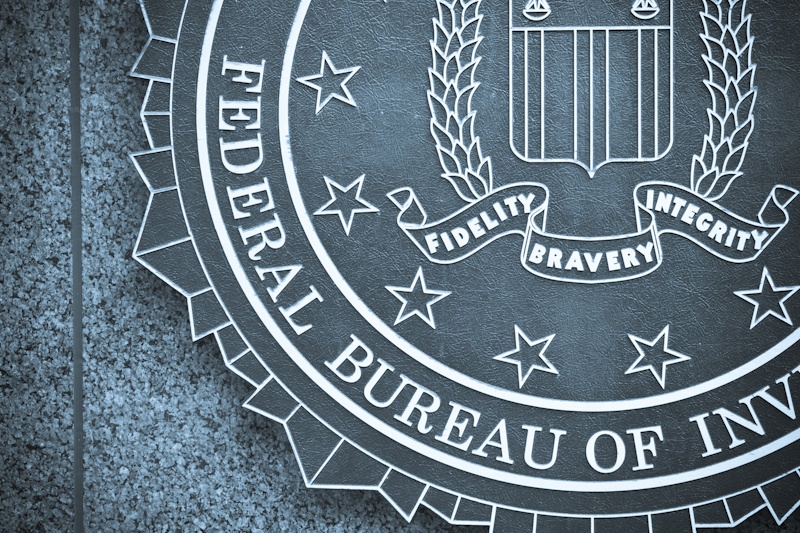The Situation: On the Resignation of Michael Feinberg
Who is accountable for this?

The Situation on Wednesday offered a list of some things that have happened recently.
The following day, Lawfare published an essay by an old friend of mine, a former FBI agent named Michael Feinberg.
The essay, which details the remarkable series of events that led to Feinberg’s resignation from the Bureau four years before his retirement eligibility, has had an intense viral life over the July 4 weekend. By the time you read this, more than 150,000 people will have read it—perhaps a great many more than that. More than 500 people have read the article in the last 30 minutes alone.
Tomorrow, the Lawfare Podcast will run an interview in which I speak to Mike at length about the circumstances of his resignation, which took place because Deputy FBI Director Dan Bongino threatened his demotion after he somehow learned that Feinberg had maintained a social friendship with former counterintelligence official Peter Strzok. Feinberg will be doing more interviews over the coming weeks.
Why the great interest in this story? The answer is that while everyone knows there is a purge going on at the FBI, people affected by it have largely chosen not to speak out. People’s pensions are at stake. Many FBI agents want understandably to preserve their viability for corporate security jobs. And the result is that the story of what is happening in the Bureau is being told through painstaking reporting by people like the New York Times’s Adam Goldman.
But as Feinberg makes clear in our conversation, the public reporting is only scratching the surface. The purge is taking place not through firings but through forced retirements, coerced resignations like Feinberg’s, and burying people in no-work jobs. There are many more such people than there are folks who actually want to talk about what’s happened to them or people they know. Feinberg, in his willingness to speak frankly about the subject, is the exception.
I met Mike some years back at a book talk event I was hosting. He walked up to me after the presentation and introduced himself as a relative of a student I knew who followed Lawfare closely. Mike seemed unusually sophisticated about the site’s work across a range of issues. And he was in one of those rarified fields, counterintelligence, that is always mysterious to those of us who don’t work in it.
Mike and I stayed in touch. We became workout buddies. He was an oddball for an FBI agent. Yeah, he could talk about guns and physical fitness requirements with the best of them, but he was also into Ingmar Bergman films and Wagner operas, and he took the opportunity of the pandemic to read Proust. His best friend is a celebrity chef. And he spoke Mandarin. I had a running joke for a few years that I was going to write a set of spy thrillers in which my George Smiley would be Mike Feinberg. I never tried it because Mike was so wholly implausible that I didn’t think I could convince people that the character was realistic.
When the second Trump administration came in, I was convinced that Mike wouldn’t last. Literally all of my other FBI friends had been, one by one, fired or forced out. Eventually, Mike would be required to do something unethical, I reasoned, and he would resign.
He, however, was committed to staying, and rightly so.
I judge pretty harshly people who choose to serve at the political level in this administration. Career officials are a different matter. If the Mike Feinbergs of the world don’t man the ship, who’s going to? America is in a dicey place, but we still need China counterintelligence specialists. And the rule of law desperately needs FBI agents who know the difference between harassment of the incumbent administration’s political enemies and genuine law enforcement priorities.
In the end, however, this administration out-lawlessed even my expectations. It didn’t bother to demand something unethical or illegal of Feinberg before getting rid of him. It was enough that he is friends with Pete—a matter of First Amendment free association in which the FBI has no legitimate business. It was enough that he is the kind of guy who would refuse an unethical or illegal order. It was enough that he’s the kind of guy you don’t want at your FBI if you’re bent on turning it into something ugly. It was enough that Dan Bongino doesn’t trust his type.
Over at the Bulwark, my friend Jonathan Last asks some penetrating questions about Feinberg’s situation:
- Why is senior FBI leadership creating dossiers about employees’ private relationships?
- How are these investigations being conducted? What tools are being used?
- Do these investigations violate any laws?
Those are good questions. But the most important one is:
- If and when Donald Trump leaves office, what are we supposed to do with the people who did this?
To these I might add another biggie:
- What is the mechanism of accountability for a current FBI leadership that is requiring polygraphs over purely First Amendment protected associations and forcing resignations of people over their presumed political sympathies?
Yes, Feinberg could sue the FBI and Bongino over the flamboyantly illegal wrecking of his career. He would probably win. It would also consume his life for the next several years. And what would he recover, really? Money. But if Feinberg wanted money, he never would have been an FBI agent in the first place. And in the meantime, while he duked it out in court, the purge at the FBI would continue. Recovering money won’t save the culture of the Bureau, which is what Feinberg really cares about.
So what’s the mechanism?
Congress could step in, of course. But it won’t.
The FBI director could step in, of course. But he wrote a children’s book that celebrated the violent taming of a dragon named DOJ and the setting of that dragon on Trump’s political enemies. He doesn’t seem a likely candidate for insisting that his deputy behave lawfully.
The attorney general could step in, of course. But she loves this stuff. She’s the one who berated an immigration attorney for the government on national television for telling a court the truth.
The president could step in, of course, But he loves it even more.
And that leaves a bit of a problem: the exercise of arbitrary power by the leadership of the people who wield guns on behalf of the executive branch domestically with no mechanism of accountability for their flagrant abuses of power. Note that neither Bongino nor the FBI has bothered to deny Feinberg’s claims. Note also that nobody at the Bureau has dared to make the argument that it is lawful or appropriate for the deputy FBI director to make personnel decisions based on who someone’s personal friends are—much less to collect such information in the first place.
So I want to ask once again: Who is going to hold Bongino accountable to the law?
The Situation continues tomorrow.


.jpg?sfvrsn=407c2736_6)


